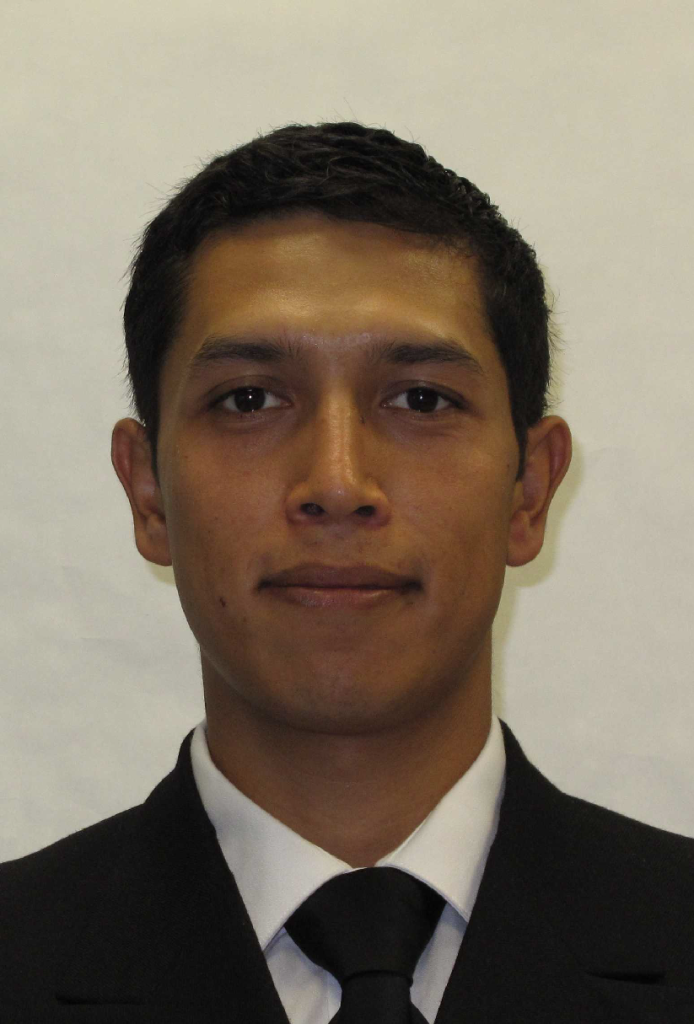
Dr. Francois Grondin
Université de Sherbrooke
Title: Sound Source Localization in Robot Audition
Abstract: This presentation introduces some key concepts in robot audition, and more specifically addresses the challenge of sound source localization (SSL). SSL provides machines with audio spatial awareness, which leads to more natural human-robot interactions, and robust multimodal recognition capabilities. This talk presents state of the art methods that can be easily deployed on embedded hardware for robot of arbitrary geometries.
Bio’s Speaker: Born and raised in Montréal (Québec), François Grondin received his bachelor’s degree (’09) in Electrical Engineering from McGill University, and his Master’s degree (’11) and Ph.D. degree (’17) in Electrical Engineering from the Université de Sherbrooke. He worked as a Postdoctoral Associate at Massachusetts Institute of Technology in CSAIL for two years, and is currently an assistant professor in the Department of Electrical Engineering and Computer Engineering at Université de Sherbrooke since 2020.

Dr. Victor Adrian Santibanez Davila
Instituto Tecnológico de la Laguna
Title: Sectorial Fuzzy Control with Adaptive Neural Precompensation for Tracking Control of Robotic Manipulators
Abstract: This talk will present a novel control architecture that uses an adaptive neural network (NN) for precompensation and a sectoral fuzzy controller in the feedback loop applied to the control of tracking of motion trajectories of manipulator robots. A historical overview of the evolution of the sectoral fuzzy controller in the application of manipulator robots will be presented, emphasizing the original passive properties of the fuzzy control block, which allowed to analytically formalize its application in manipulators, both in regulation and tracking. It will continue with the introduction of new properties of the sectoral fuzzy block, useful to generate strict Lyapunov functions that allow us to guarantee the fulfillment of the tracking control objective of sectoral fuzzy controllers with precompensation or with adaptive neural precompensation.
Bio’s Speaker:Dr. Víctor Adrián San báñez Dávila holds a PhD in Electronics and Telecommunications (1997) from the Center for Scientific Research and Higher Educatio of Ensenada CICESE, a Master of Science in Electrical Engineering (1981) and an Industrial Engineer in Electronics (1976) from the Technological Institute of La Laguna. He worked in the industry at Altos Hornos de México (1977-1979) and Metalúrgica Mexicana Peñoles (1979-1980). He completed a research stay by invitation within the Program of Stays for Scientists and Technologists in Spain in the area of robotics at the Institute of Industrial Automation in Madrid, Spain (1989-1990). He is currently a Research Professor at the Technological Institute of La Laguna of TecNM (from 1982 to date). He has been recognized by the National System of Researchers as a National Researcher Level III from January 1, 2020 to December 31, 2034. He has also been a visiting professor at the University of Catalonia in Spain. He has been a member of the SNI Review Committees (Area VII and Transversal Technology). President of the Review Committee of the Program of Researchers for Mexico CONAHCYT 2023. His areas of interest are: robot control, nonlinear control, adaptive control, fuzzy control and control of mechatronic systems.

Dr. Hiram Ponce
Universidad Panamericana
Title: The Impact of Robotics and Artificial Intelligence Today
Abstract: This talk focuses on technological innovation from the perspective of robot development in conjunction with artificial intelligence. Key aspects are addressed for understanding the impact of intelligent robotics in today’s world.
Bio’s Speaker: El Profesor Hiram Ponce recibió los grados de Maestría en Ciencias de la Ingeniería y Doctorado en Ciencias Computacionales por el Tecnológico de Monterrey en 2010 y 2013, respectivamente. Desde 2014 labora en la Universidad Panamericana Campus México, donde ha sido Profesor Investigador Titular D en la Facultad de Ingeniería, así como Coordinador del Doctorado en Inteligencia Artificial. Actualmente es Secretario de Investigación. Además es miembro del Sistema Nacional de Investigadores, nivel 1 (por el Consejo Nacional de Ciencia y Tecnología). En 2014 fue reconocido con el “Premio Nacional a Mejor Tesis Doctoral sobre Inteligencia Artificial” por la Sociedad Mexicana de Inteligencia Artificial. En 2017 fue ganador del “Premio Google a la Investigación”. Cuenta con más de 120 publicaciones en revistas y congresos de prestigio, 4 libros y 9 capítulos de libro. Sus intereses de investigación son inteligencia artificial, robótica, mecatrónica y tecnologías para la vida asistida.

Peter Wallace
Civil Engineer and CEO of iGeo Mexico
Title: Beyond Bionics: The New Era of Quadruped and Humanoid Robots
Abstract: Advancements in robotics have transformed multiple industries, from security and inspection to research and education. In this keynote speech, we will explore how iGeo Mexico and Unitree Robotics are leading this revolution with its quadruped and humanoid robots. We will delve into their innovative design, advanced mobility capabilities, and seamless integration of artificial intelligence for applications in challenging environments. We will highlight real-world use cases in industrial inspection, search and rescue, automation, and education, showcasing how these robots not only complement but also enhance human work by improving efficiency and safety. Additionally, we will discuss the future of mobile robotics, emerging trends in autonomy and AI-driven decision-making, and the opportunities these advancements present for science and industry. Through live demonstrations and real-world examples, this talk will provide a clear vision of how robotics is shaping the modern world and how Unitree’s technology is driving the next generation of autonomous robots.
Bio’s Speaker: Born and educated in Ireland he earned a degree in Civil Engineering from the Dublin Institute of Technology. With over 26 years of experience in the geospatial industry, he has worked in the fields of serveying, mapping, and mobile scanning solutions. In 2008, he joined Trimble Geospatial as Global Sales Director, managing renowned brands such as Spectra Precision, Ashtech, Nikon, and Seco. Later, in 2016, he took on the responsabiliy of leading all geospatial business operation for Trimble in Latin America. Throughout his career, he has been a keynote speaker at high-profile international events. Notable appearances include the 2016 Latin America Geospatial Forum in Mexico City adn various global conferences on surveying and construction in the UK, India, Cuba, China, Japan, Russia, France, Argentina, Brazil, and Chile. He is multilingual, fluent in Spanish, Portuguese, English, and his native Gaetic. In June 2024, he became CEO of iGEO Mexico, partnering with Trimble. Currently, he resides in Mexico and continues to drive innovation in geospatial technology.

Nahum Camacho Zamora
Frigate Captain SIA IMN
Title: Challenges in the development of intelligent unmanned aerial vehicles for the Navy
Abstract: The Mexican Navy has incorporated emerging technologies to strengthen its operational and surveillance capabilities across land, maritime, and coastal environments. In this context, the development of intelligent UAVs represents a strategic area with high potential, but also significant technical, logistical, and ethical challenges. This conference will address the main challenges involved in developing UAVs equipped with intelligent capabilities, focused on missions such as reconnaissance, search and rescue, and maritime security — all aimed at supporting the civilian population. Key aspects to be discussed include autonomous decision-making, integration with existing naval systems, resilience to adverse weather conditions, and protection against threats that may pose a risk to the aircraft. The importance of inter-institutional collaboration, the development of specialised talent, and the promotion of national technological innovation will be highlighted as key pillars in advancing towards a reliable and operational ecosystem of intelligent UAVs. Strategic perspectives will also be shared regarding the role of these technologies in enhancing Mexico’s maritime sovereignty and security.
Bio’s Speaker: Nahum Camacho Zamora joined the Mexican Navy’s School of Engineers, graduating in 2007 as the top cadet with an honorary mention. He earned the title of Naval Mechanical Engineer in 2008 after completing residencies across various Navy units. In 2011, he joined INIDETAM, working on the UAV project as an aerodynamic and mechanical designer, which was presented to President Felipe Calderón in 2012. That same year, he enrolled at the Naval Postgraduate School (USA), researching solar aircraft swarms for the U.S. Marine Corps. In 2014, he earned a Master of Science in Mechanical Engineering and Mechanical Engineer degree, receiving the Outstanding Thesis Award. He led the development of an Autonomous Tactical Aerial Reconnaissance System, delivered in 2018 for naval and civilian support operations. In 2019, he became the technical lead before CONACYT for a hybrid VTOL UAV system, advancing research in aerodynamics, avionics, and control systems. He co-organizes the Mexican Symposium on Unmanned Aerial Vehicles, showcasing national research and innovation. Camacho is recognized as a leading figure in UAV development in Mexico and Latin America. His projects demonstrate technological parity with international UAV systems. He continues to contribute significantly to aerospace innovation within the Mexican Navy.

Jens Grossklags
Technical University of Munich
Title: Cybernetic Avatars, generative AI and the Metaverse: Expert and Laypeople Visions of a Desirable Future
Abstract: How do laypeople and experts around the world assess the role of advanced technology when reasoning about a desirable future? Using the scenarios of cybernetic avatars, generative AI and the metaverse, this talk provides an overview across a series of multi-national studies that draw on “futuring” methodologies, which enable us to strategically think about future developments and their societal implications. In our studies, participants from countries including Japan, Germany, Nigeria, and Taiwan creatively envisioned uses of technologies, explored the consequences of technology deployment, assessed risks, and derived measures to achieve goals for the successful integration of technology in society.
Bio’s Speaker: Jens Grossklags holds the Professorship for Cyber Trust at the Department of Computer Science at the Technical University of Munich. He studies security and privacy challenges from the economic, technical, and behavioral perspectives with a variety of methodologies. Jens Grossklags received his Ph.D. from the University of California, Berkeley, and was a Postdoctoral Research Associate at the Center for Information Technology Policy at Princeton University. He then served as the Haile Family Early Career Professor at the Pennsylvania State University.
